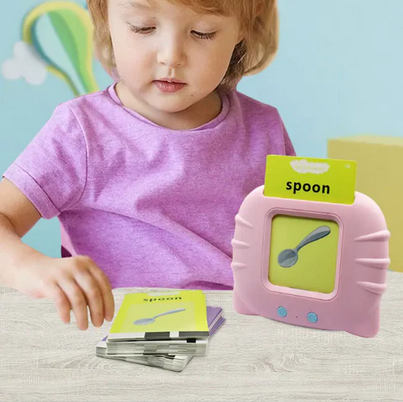When selecting toys for toddlers, parents often navigate many options that promise educational benefits. Among these choices, Montessori toys have gained considerable attention due to their emphasis on child-led learning and development; for parents seeking to foster independence, creativity, and critical thinking in their two-year-olds, understanding what to look for in Montessori toys becomes paramount. These toys engage children's natural curiosity and are designed to promote essential skills that will serve them throughout their lives.
Understanding the Montessori Philosophy
It is essential to grasp the underlying philosophy of Montessori education to appreciate the qualities of Montessori toys truly. Founded by Dr. Maria Montessori, this approach emphasizes learning through exploration and hands-on experiences. Children are viewed as active participants in their learning process and encouraged to choose activities that resonate with their interests. Montessori materials are designed to be developmentally appropriate, promoting autonomy and self-discovery.
At the age of two, children are at a critical developmental stage, beginning to assert their independence and explore their surroundings with increasing vigor. Montessori toys cater to this developmental phase by providing open-ended opportunities for play. Unlike traditional toys that often dictate how a child should play, Montessori toys allow for creative exploration, enabling children to engage in various activities based on their interests and abilities. With this understanding, parents can make informed choices when selecting toys for their little ones.
1. Safety and Durability
One of the foremost considerations when choosing Montessori toys for two-year-old is safety. Children are naturally curious at this age and often explore their environment orally, leading to the likelihood of placing objects in their mouths. Therefore, selecting toys made from non-toxic materials that are free from harmful chemicals is crucial. Wooden toys are a popular choice in the Montessori community due to their durability, sustainability, and safety.
Additionally, the durability of toys plays a significant role in ensuring long-term engagement. Montessori toys should withstand the rough and tumble of toddler play without easily breaking or deteriorating. Parents should look for well-crafted toys that can endure years of exploration and creativity, making them a worthwhile investment. Toys that can be easily cleaned and maintained also contribute to a safe and hygienic play environment, allowing parents to feel secure in their choices.
2. Open-Ended Play Opportunities
A hallmark of Montessori toys is their ability to encourage open-ended play. These toys do not have a predetermined use; instead, they invite children to explore various possibilities. For instance, a simple set of wooden blocks can be used for stacking, sorting, or imaginative play, allowing children to engage their creativity and problem-solving skills. This open-ended nature is particularly important for their evolving interests and cognitive abilities.
When selecting Montessori toys, parents should prioritize those that promote imaginative play and creativity. Toys such as art supplies, play dough, and simple crafting materials allow children to express themselves while exploring different textures and colors. Additionally, toys that can be manipulated in multiple ways—such as shape sorters or stacking rings—encourage critical thinking and fine motor skill development. Parents can foster a love for learning that extends beyond traditional play by providing children with toys that inspire creativity and imagination.
3. Promoting Practical Life Skills
Montessori education strongly emphasizes the development of practical life skills, allowing children to engage in activities that mirror real-life experiences. For two-year-olds, toys that encourage the practice of these skills can significantly contribute to their overall development. Practical life toys include child-sized kitchen tools, gardening sets, or simple sewing kits.
These toys provide opportunities for skill development and cultivate a sense of responsibility and independence. For example, a child-sized broom or dustpan can empower toddlers to participate in household chores, fostering a sense of accomplishment. By engaging in practical life activities, children learn to navigate their environment confidently, developing essential motor skills and coordination. Toys that promote these skills encourage children to take ownership of their learning and contribute positively to their surroundings.
4. Encouraging Sensory Exploration
At the age of two, children are naturally drawn to sensory experiences. Montessori toys that provide rich sensory stimulation can captivate a toddler’s attention while supporting their development. Sensory toys can encompass a wide range of materials and textures, from soft fabrics to textured balls, each offering unique experiences for exploration.
For instance, toys incorporating sounds like musical instruments or rattles can enhance auditory skills and promote listening abilities. Similarly, toys with different textures encourage tactile exploration, allowing children to develop sensory processing skills. Engaging toddlers in sensory play supports their cognitive development and enhances their emotional well-being by providing a calming outlet for self-regulation. When selecting Montessori toys, parents should prioritize those that offer diverse sensory experiences, fostering holistic development.
5. Alignment with Individual Interests
Every child is unique, with their own set of interests and preferences. One of the key aspects of Montessori education is the respect for individual learning styles. When choosing toys, parents should consider their child's interests and how those can be integrated into the play experience. Whether a child is fascinated with animals, art, or construction, a Montessori toy can cater to those interests.
For example, suppose a child is captivated by nature. In that case, a set of animal figurines or a gardening kit can provide opportunities for imaginative play while nurturing a love for the outdoors. Likewise, if a child enjoys music, incorporating simple instruments into their playtime can inspire creativity and exploration. Parents can create a more engaging and meaningful play experience that encourages learning and exploration by aligning toy choices with a child's individual interests.
In the parenting journey, selecting the right toys for toddlers can significantly impact their development and learning. Montessori toys, with their emphasis on safety, open-ended play, practical life skills, sensory exploration, and alignment with individual interests, offer a rich array of opportunities for two-year-olds to thrive. Parents can create a stimulating environment that fosters a love for learning and exploration by investing time and thought into toy selection, laying a solid foundation for their child's future growth and development.





Comments